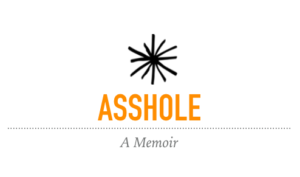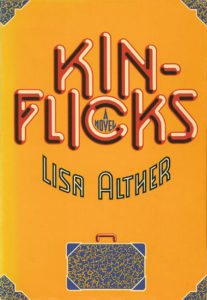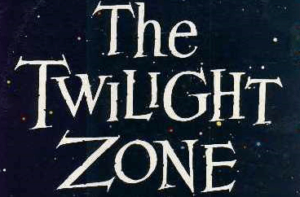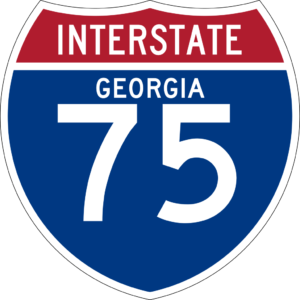
“My family’s always been into death.”
That’s not me talking. That’s the opening line of Lisa Alther’s great novel Kinflicks, one of the key books of my life. I got it new in 1976 and look at it now: raggedy-ass cover, coffee-circles burned into the binding, dog-eared pages and spills here and there. This is an appreciated book. I lent it to so many friends and brought them into the Kinflicks world.  (And a few of the apparently used the book as a coaster, a practice I find reprehensible.) Still, this book has been read by many hands — hands of people I loved.
(And a few of the apparently used the book as a coaster, a practice I find reprehensible.) Still, this book has been read by many hands — hands of people I loved.
That opening line is followed with the story of how our protagonist, Cissy, was raised in a family that was always talking or thinking about death. “My father, the Colonel, always kept a serving fork on the dinner table in case he needed to perform an emergency tracheotomy.” Great book, as I say.
But that wasn’t my family, even though Dad could have probably performed a successful tracheotomy with a butter knife.
 But I was into death. From the time I was in single digits, I had a sense of impending death.
But I was into death. From the time I was in single digits, I had a sense of impending death.
My real obsession with death began on February 7, 1963, a Thursday night. We were stationed at Homestead Air Force Base in Florida, where my father was hospital commander. We’d just survived the Cuban Missile Crisis a few months before. As the southernmost military installation on the United States mainland, we were vulnerable. Those missiles were pointed at us.
I was terrified of death the whole time we were on the brink of nuclear war and imagined being vaporized at any moment. But then it passed. The Americans were eyeball to eyeball with the Russians, and then the Russians blinked.
So I had thought about death a good deal, perhaps more than most nine year olds, but once we realized we were not going to war, my thoughts returned to Mickey Mantle, Al Kaline and Rocky Colavito.
But then came that Thursday night when I saw the “Death Ship” episode of “The Twilight Zone.” Here’s the plot summary, from Internet Movie Database: “An interplanetary expedition from earth finds an exact duplicate of their ship and themselves crashed on the planet they were surveying. Should they stay or risk taking off and crashing?”
 The astronauts were played by Jack Klugman, Ross Martin and Frederick Beir. As they debated what to do it occurred to me that I was going to die someday.
The astronauts were played by Jack Klugman, Ross Martin and Frederick Beir. As they debated what to do it occurred to me that I was going to die someday.
Suddenly, life revealed itself to my nine-year-old psyche as a ridiculous spectacle, a cruel and heartless joke.
Why were we brought into this life only to lose it someday? What the fuck was up with that?
When the show was over and I was in my lower bunk — my big brother up top kept the light on, reading Spinoza — I kept pondering the imminence and incongruity of death.
I got out of bed and walked into my parents’ room. I hugged my father and kissed him on the cheek. “I love you, Dad,” I said. Then I solemnly walked around the bed and repeated the ritual with my mother.
I went back to bed and then, ten minutes later, made another trip into the bedroom and repeated the procedure. And then again.
“What the hell are you doing?” my brother asked after my third trip.
“None of your business,” I said, and went to kiss my parents again. Eventually, I fell asleep that night, but the thought of imminent death hung over everything from then on.

There came an afternoon when visiting my grandparents in Ohio when I drank two milkshakes back-to-back and suddenly felt so bloated that I would suffer death by chocolate.
Another time, Tony Ong and I wrecked our bikes in traffic — I figured for sure I’d be run over by a Buick Riviera and dragged to my death.
Around that time, I remember discovering a bump on the back of my neck. This was it: the tumor that would kill me.
For years, I kept the existence of this nodule of doom to myself. Watching television, my hand would absently go to the back of my neck, to check on it, to make sure it was still there, always hoping it was gone.
I worried about this thing for about ten years until one night, while visiting my aged Aunt Inez and Uncle Cecil, I decided to ask Dad about it. I guess if I was going to pass out dead over Aunt Inez’s beef stroganoff, it would be nice to get advance warning from my father.
“Dad? Could you feel this thing for me?”
He reached around my shoulder and, with only a little guidance, found it.
“That?” he said.
“Yeah. Is it … a tumor?”
He looked at me and started to smile, but then he saw the worry on my face.
“No son,” he said. “It’s just fat — a little ball of fat. Nothing to worry about.” He patted me on the shoulder and we went in for dinner.
Another narrow escape. I can still feel that bump on my neck, by the way.
I always imagined some new way to die: dealing with a fireball on a DC-10 at 30,000 feet; getting skull-fractured by a young hoodlum tossing a bowling ball off an overpass; getting trapped by an inferno in a hotel while in Omaha for a boring academic conference.
Fire was my great fear — so many of my death fantasies involved that, watching my skin catch fire and turn to crust. A good friend married to a firefighter told me not to worry about that, though. “The smoke’ll get you first,” she said.
 For someone who drove so much — long, madman drives between Florida and Indiana when I’d steal long weekends to go visit my older kids when they were little — I had a library of death scenarios from the highways. I certainly saw enough accidents and had a lot of close calls. One time, a guy intent on suicide jumped in front of my car but my cat-like reflexes (if you knew me, you’d realize that’s funny) allowed me to swerve at the last minute. There’s a herd of deer in the world that would not exist had I not be able to respond so quickly.
For someone who drove so much — long, madman drives between Florida and Indiana when I’d steal long weekends to go visit my older kids when they were little — I had a library of death scenarios from the highways. I certainly saw enough accidents and had a lot of close calls. One time, a guy intent on suicide jumped in front of my car but my cat-like reflexes (if you knew me, you’d realize that’s funny) allowed me to swerve at the last minute. There’s a herd of deer in the world that would not exist had I not be able to respond so quickly.
And there were all the times I fell asleep while driving. In order to get to spend as much time as possible with the kids, I’d start driving after work, sometimes going straight through — 15 hours, with stops only for urination. Gainesville, Florida, to my ex-wife’s home in Bloomington, Indiana, was 853 miles door to door. Fifteen hours, unless there was a lot of traffic. A long haul by any definition.
I was once awakened by my Goodyears spitting gravel on the side of the road. I pulled the car back just before hitting a massive oak. Another time, I was skirting the edge of a shallow ditch in the median of I-24 when I woke. I would sometimes be nearly delirious from fatigue while driving. I’d go forty-five minutes or an hour, on occasion, before realizing I had not given a thought to driving in all of that time. My future was clear: I would become a Georgia highway fatality.
But I’d never thought about that other kind of dying — wasting away under my Hudson’s Bay blanket, too weak to speak, nothing but a bed-soiling burden to friends and famiiy, sentenced to living out my last years in a morass of adult diapers and deep cable. That kind of death wasn’t nearly as dramatic as going down in flames on I-75.
As it turned out, after all of my elaborate visions of death I began thinking I might be taking the slow and agonizing way out.
![]()

Love the line, “. . . sentenced to living out my last years in a morass of adult diapers and deep cable.” I’m a line hunter and keeper. 🙂